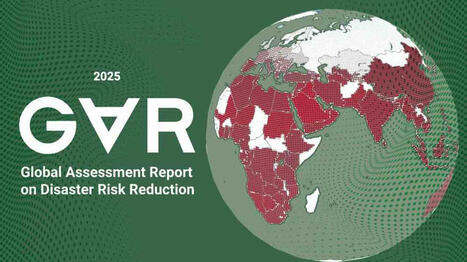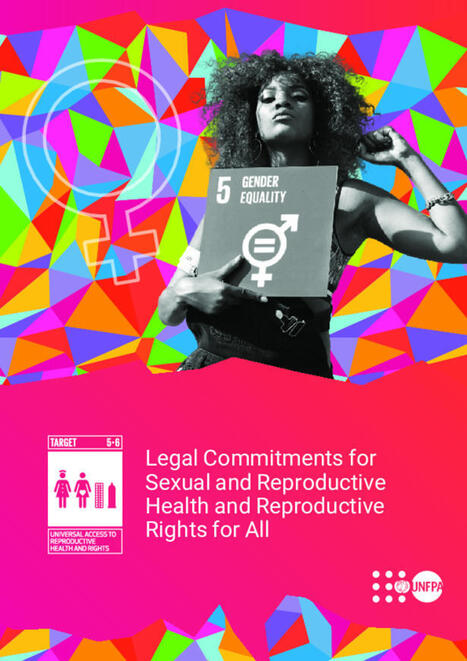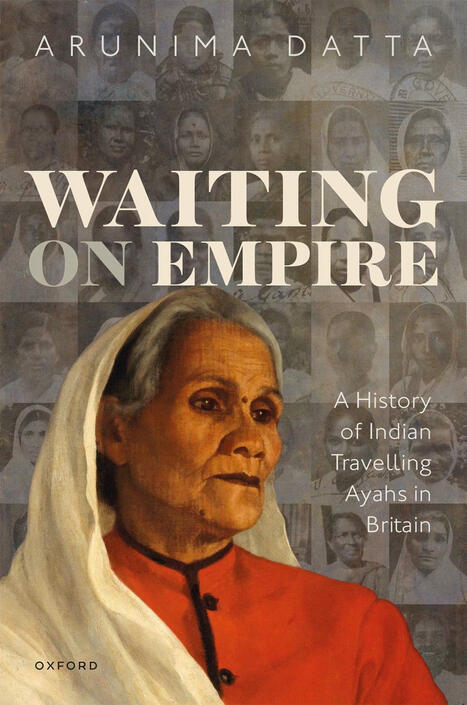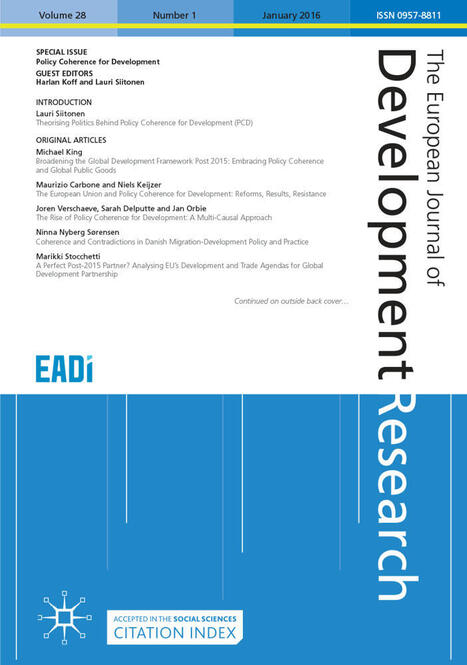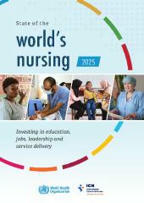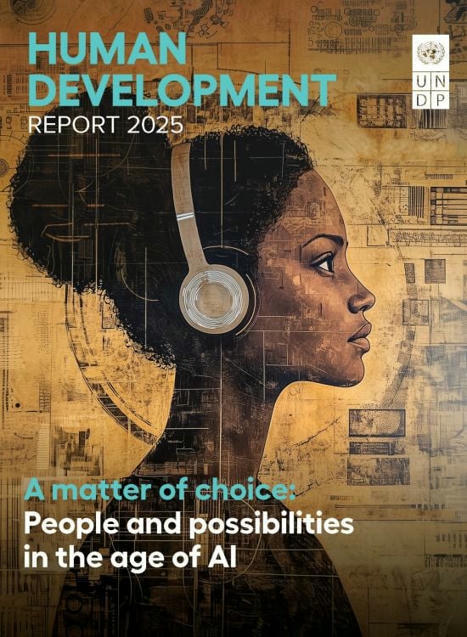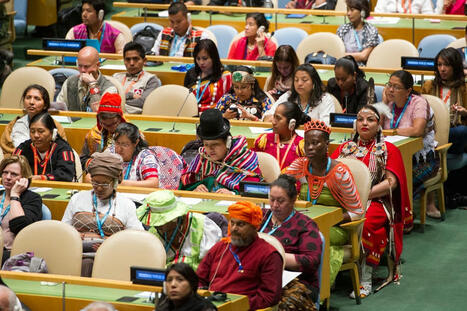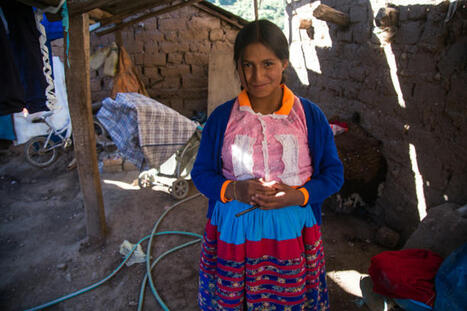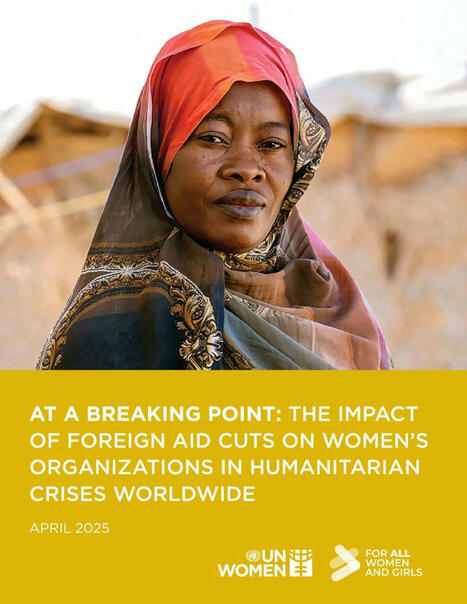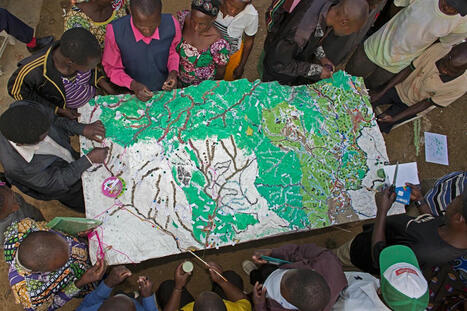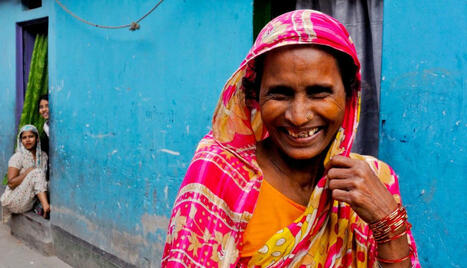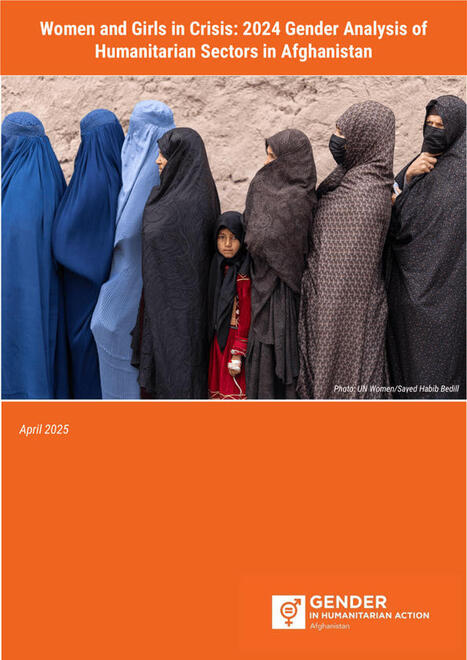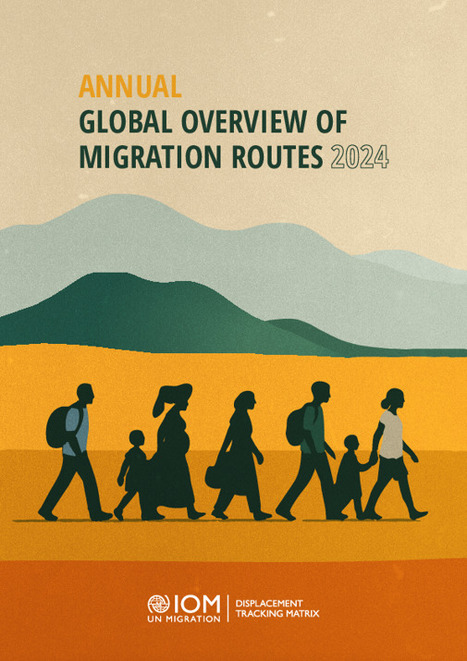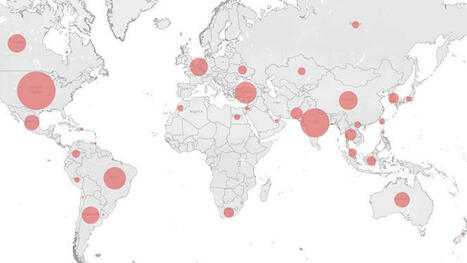 Your new post is loading...
 Your new post is loading...

|
Scooped by
heather dawson
June 19, 4:21 PM
|
Disaster costs now exceed over $2.3 trillion annually when cascading and ecosystem costs are taken into account. The Global Assessment Report (GAR) 2025: Resilience Pays: Financing and Investing for our Future highlights how smarter investment can re-set the destructive cycle of disasters, debt, un-insurability and humanitarian need that threatens a climate-changed world.

|
Scooped by
heather dawson
June 19, 4:18 PM
|
Through SDG indicator 5.6.2 (Number of countries with laws and regulations that guarantee full and equal access to women and men aged 15 years and older to sexual and reproductive health care, information and education), UNFPA has compiled

|
Scooped by
heather dawson
June 19, 4:14 PM
|
Food Security, Nutrition, and Climate Resilience Evidence Review (IFAD)
https://www.ifad.org/en/w/publications/food-security-nutrition-and-climate-resilience-evidence-review
This report presents an analysis of the impact and cost-effectiveness of 40 common interventions in food security, nutrition and climate resilience. These include interventions related to production systems, post-harvest management and processing, food availability and affordability, financial services, governance, nutritional health and behaviour change communication. The report aims to provide a resource for policymakers in the food and nutrition space to understand the evidence behind various interventions.

|
Scooped by
heather dawson
June 16, 3:48 PM
|
Decolonising Health archive Launched by staff at Department of Global Health and Social Medicine at King’s College London it seeks to create a network and provide free access to resources to understand legacies of coloniality and knowledge production. These include policies, Eurocentric attitudes and histories of health in the British empire.

|
Scooped by
heather dawson
May 23, 4:22 AM
|
This quick guide aims to support NGOs in understanding and engaging with the ongoing IASC Humanitarian Reset.

|
Scooped by
heather dawson
May 22, 6:26 AM
|
The decolonisation of development studies and knowledge in general has become a very popular conversation. However, the idea of decolonisation is rather ill-defined in academia, with a variety of arguably unrelated initiatives being pursued in the interest of decolonising development studies. This paper defines what decolonising development studies entails by arguing that development studies is characterized by eurocentrism. Specifically, I argue that the idea of development in development studies is that of the development of capitalism, which is seen to have developed in Europe due to largely intrinsic European characteristics related to resource availability, labour productivity, and institutions. Therefore, much of the discourse of development is based on this implicit idea that the periphery can and should follow this path of progress. However, this is a path of development is mythical, and ignores the role played by colonialism and the slave trade, and the transformation of social relations. And since the Eurocentric understanding of the development of capitalism in the capitalist centre is the epistemological norm for development, the periphery can only be understood as aberrant from the ideal developmental norm. This compromises our understanding of the process of development. This article argues that decolonising development studies means dismantling the dominance of Eurocentric theories, methodologies, and approaches in development studies and to challenge the structural exclusions in development studies that supports and legitimizes Eurocentrism, and in turn, imperialism.

|
Scooped by
heather dawson
May 14, 6:51 AM
|
The 2025 edition of the State of the world’s nursing provides the most comprehensive and up-to-date analysis of the nursing workforce. The report features new indicators on critical areas for nursing, such as education capacity, advanced practice nursing and remuneration.

|
Scooped by
heather dawson
May 12, 5:48 AM
|
Human Development Report 2025: A matter of choice: people and possibilities in the age of Artificial Intelligence (AI) (UNDP)
Report in English, Overview in English, French & Spanish: https://hdr.undp.org/content/human-development-report-2025
Digital Report: https://report.hdr.undp.org/
Human development progress is experiencing an unprecedented slowdown according to the 2025 Human Development Report released on 6 May 2025 by the United Nations Development Programme (UNDP). The report shows how Artificial Intelligence (AI) could reignite development. Instead of seeing sustained recovery following the period of exceptional crises of 2020-2021, the report reveals unexpectedly weak progress. Excluding those crisis years, the meagre rise in global human development projected in this year’s report is the smallest increase since 1990.

|
Scooped by
heather dawson
May 12, 5:41 AM
|
At its first session, the United Nations Permanent Forum on Indigenous Issues (UNPFII) requested the United Nations System produce such a report on the state of the world’s Indigenous Peoples (SOWIP).

|
Scooped by
heather dawson
May 12, 5:37 AM
|
During the influx of 2017, the entire Rohingya community was tragically compelled to abandon their homeland. With uncertainty looming over their future, they fled to Bangladesh, where they established the largest refugee camp in Cox’s Bazar.
51 per cent of the Rohingya community are female. In the camps, women and girls have were exposed to various risks, including gender-based violence. To address the issues of women and girls, IOM launched the Women’s Participation Project (WPP), which strives to empower women, encouraging their active engagement in decision-making processes and amplifying their voices in camp governance through forming a women committee through Site Management and Site Development (SMSD). Through this initiative, women are not just participants; they are the strong network of sisterhood in the community, dedicated to uplifting their peers through invaluable information, spirited awareness campaigns, dynamic meetings, and the joyful sharing of their skills.
In this book, we set out to uncover the inspiring stories of the women committee members of WPP, their childhoods, experiences in their homelands, and journeys to the camps. Within the camps, they face daily struggles for survival. Yet we witness the remarkable resilience of these women, who refuse to give up on life despite the overwhelming challenges they encounter. Each narrative reflects the transformative power of hope and faith that has accompanied them. We believe these stories will uplift and empower all women to pursue their dreams with unwavering determination and never give up on life and their aspirations.

|
Scooped by
heather dawson
May 6, 4:19 AM
|
is an international consortium of scholars working together to develop a new standardized data regime to study and share data about elites across the world. These are defined as rich lists, top CEOs and elected politicians and top bureaucrats, interest groups (business organisations, lobbies, unions). The website is developing data from 15 nations, including the US, UK, and Russia - this includes Biographical data on the members of the economic elite (gender, age, place of birth, nationality, etc.).
- Socio-economic origins
- Wealth of individuals as communicated in the media.
- Educational background (university education, educational institution, type of degree, discipline, etc.).
- Career (position held, duration, in which company or organisation, etc.)
- Variables on the most important companies on the national economic scene (market capitalisation, turnover, number of employees, etc.).
There are national sections, details on methodology and links to publications. Including this recent article

|
Scooped by
heather dawson
May 2, 6:44 AM
|
What does it take to persuade policy makers to make real progressive change? Kath Ford explains how Oxford University’s Young Lives study found success with a combination of robust longitudinal data, translating research into policy influencing and, crucially, relationships built painstakingly...

|
Scooped by
heather dawson
April 30, 3:04 AM
|
|

|
Scooped by
heather dawson
June 19, 4:20 PM
|
As humanitarian crises intensify globally, women’s organizations are being pushed to a breaking point. A March 2025 UN Women survey of 411 women’s organizations across 44 crisis settings found nearly half expect to close within six months due to funding cuts. This publication highlights urgent findings and calls for action to ensure that life-saving services for women and girls remain central to the humanitarian reset amid aid reductions.

|
Scooped by
heather dawson
June 19, 4:17 PM
|
Section navigation Preventable life expectancy gaps are worsening across social groups, which are cutting lives short, sometimes by decades. Where we are born, grow, live, work and age, and our access to power, money and resources influence our health outcomes more than genetic influences or...

|
Scooped by
heather dawson
June 19, 6:34 AM
|
By Marine Gauthier / part of our “Share your Decolonising Story” project A Personal Reckoning with Expertise My engagement with international development has always been entangled with postcolonial…

|
Scooped by
heather dawson
June 3, 12:11 PM
|

|
Scooped by
heather dawson
May 22, 6:27 AM
|
By Ron Salaj The Incompatibility of AI and Humanitarian Principles

|
Scooped by
heather dawson
May 14, 7:19 AM
|
Online exhibition, exploring 80 key documents that have shaped the United Nations and our world.

|
Scooped by
heather dawson
May 14, 6:21 AM
|
World Health Organization
World report on social determinants of health equity, 2025
This report from the WHO on the social determinants of health equity confirms that people's health and wellbeing depends on much more than their genes and access to health care. To reduce these avoidable and unjust health gaps, it is vital to address the non-medical root causes that shape most people's health and wellbeing. Read the report

|
Scooped by
heather dawson
May 12, 5:43 AM
|
The World Social Report (WSR) is a publication issued by the Division for Inclusive Social Development of the United Nations Department of Economic and Social Affairs (UN DESA). This report serves as a valuable tool for analyzing and researching global social development issues. It offers valuable insights into current trends and upcoming challenges.

|
Scooped by
heather dawson
May 12, 5:40 AM
|
Analysis in English on Afghanistan about Education, Food and Nutrition and more; published on 27 Apr 2025 by AP GiHA WG and UN Women

|
Scooped by
heather dawson
May 12, 5:31 AM
|
The Annual Overview of Migratory Routes aims to provide a global snapshot of migration in 2024 from a route-based perspective. This approach investigates routes across national and regional boundaries, requiring a multi-country perspective and holistic view of human mobility, which considers people at origin, in transit, and at their destinations. By using this approach, the report seeks to provide an overview of the main dynamics along some of the world’s key migratory routes.

|
Scooped by
heather dawson
May 6, 4:18 AM
|
The IMF’s new data portal provides streamlined access to international financial data it is easy to explore and has updated API capabilities,

|
Scooped by
heather dawson
April 30, 7:26 AM
|
Temporary Trade Barriers Database Temporary Trade Barriers Database (World Bank) This database collects information on the use of temporary trade barriers in the form of antidumping, countervailing, and safeguard measures across over 30 countries since the 1980s through 2024. These policy measures, often referred to as trade remedy actions, are implemented by government authorities against imports likely to have an adverse effect on national production, either by dumping, subsidies, or import surges by foreign sellers.
|


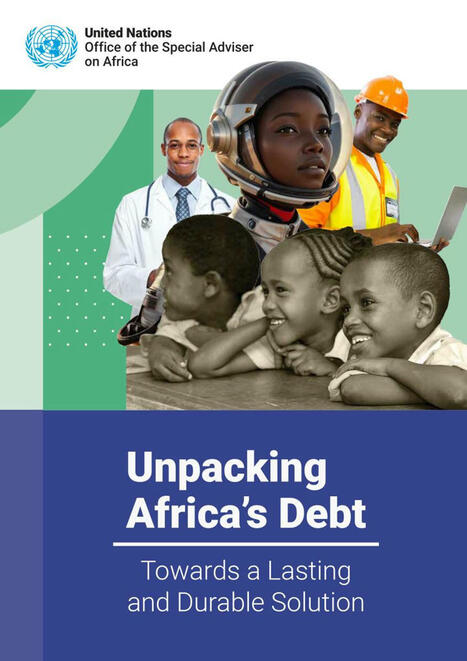


 Your new post is loading...
Your new post is loading...
